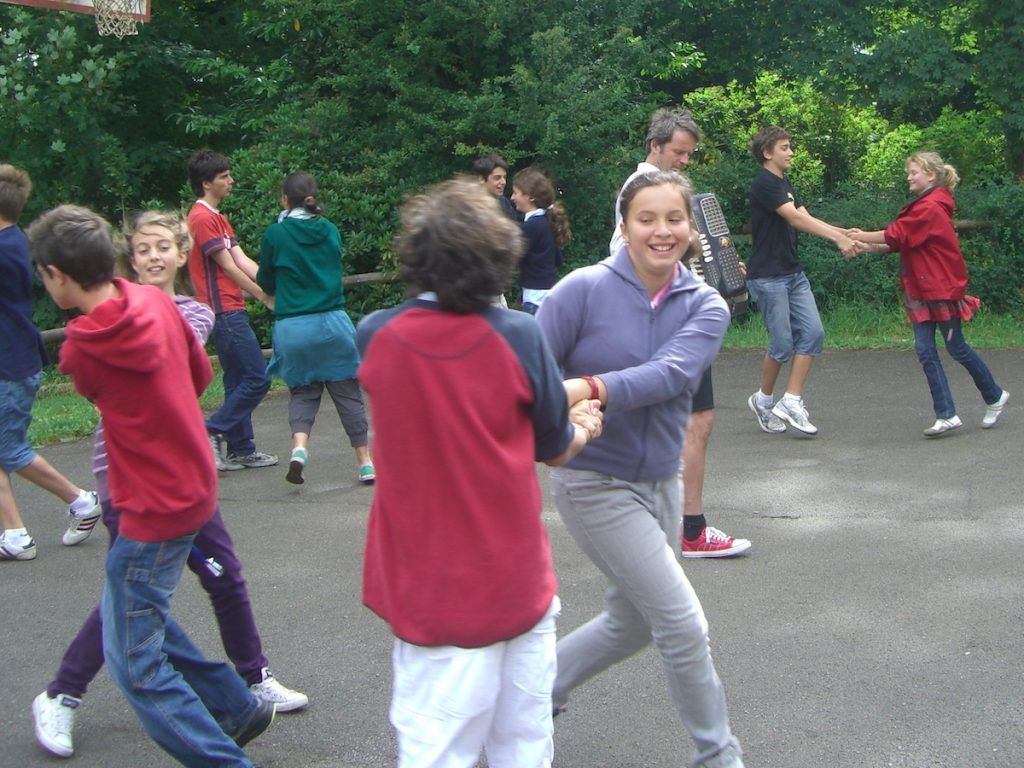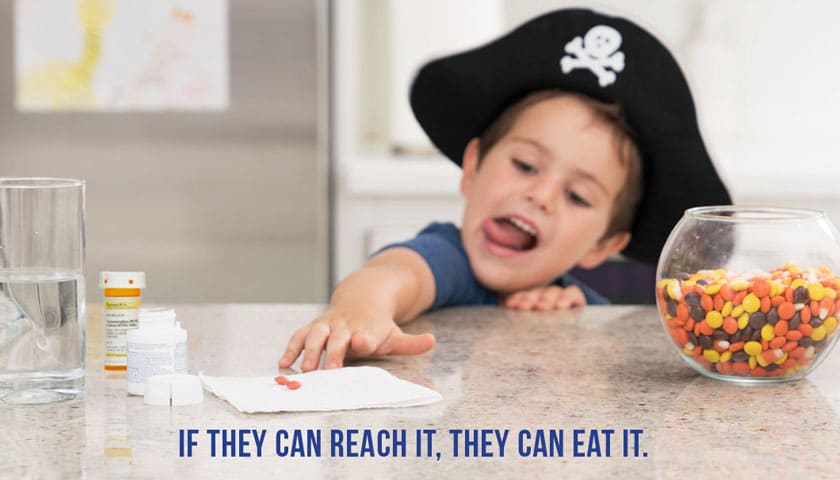The OfCom annual report reveals some findings that offer the opportunity to raise awareness on a specific critical point: the position of children between online and offline worlds.
According to the report, cited by BBC News on the 4th of February 2020:
- 50% of children age 9 or 10 own a smartphone (one out of two);
- 24% of children age 3 or 4 own a tablet (one out of four).
In addition 15% of these young ones are allowed to take the tablet to bed as if the tablet were a teddy bear…
[Read here the whole article by Zoe Kleinman for BBC News]
Online or offline: where am I ?
Even more than the figures it is significant the comment by the OfCom strategy and research group director, Yih-Choung Teh:
“I’m conscious that for these children who have never known a world without the internet, in many respects their online and offline worlds are indistinguishable.”
“Their online and offline worlds are indistinguishable”: we all should think carefully about the comment by Mr Teh. He focuses on a significant vulnerability, that might only unfold its consequences at a later stage of development.
What impact might have that new vulnerability that cause children to confuse the online and offline world?
What consequences might unfold for not being able to distinguish the online and offline worlds?
Let me try to answer to this question by looking for a moment at the “other children”, at those children who have never known the world with the internet.
Those children actually lived also in two worlds:
- the ‘real’ world shaped by the adults, and
- their own world of imagination.
Growing without internet
Children -before the internet and even before the TV spread all over the planet- had loads of time to play at home. They often engaged themselves in simple imaginative play-roles: be a doctor or a nurse, a cow-boy or a fireman, a pilot or a baker etc.
The sofa could become a spaceship, the sieve could be a helmet, a long wooden spatula was perhaps used as Excalibur.
The wardrobe of mum and dad was often sacked -to their despair- to dress up and play to be adults or any character they somehow heard about.
In short, they created worlds with their fantasy. They need a spark. The spark was already into them: they needed the environment that allowed them fire their imagination.
What children need in the age, when the internet is so widely delivered, is to grow in a protected environment, where their human heritage can come to light safely and happily. But, let me highlight: ‘protected’ not isolated.
That means the adults are responsible for creating such a safe environment where they can set their fantasy free, and create their imaginary worlds!
In playing, the real and imaginative dimension are inter twisted and advance together hand in hand. Through playing, the children enter the real world, moving from their own world of imagination! Furthermore, they learn while playing. This is a really magical condition that is dominating the early years and the childhood! Playing is in fact a spontaneous strategy of learning, we can say a syncretic strategy where thinking and doing happen in the same time.
Growing in a playful, creative environment is not only a healthy, good way to nourish their talents and potentials. It is the way, organically rooted into the nature of a human being, that enables children to become gradually aware of what is fantasy and what is real, what they like and what they don’t, what is fair and what is not, what makes sense and what is a non-sense, what matters and what doesn’t…
They learn to distinguish the two realms and develop one of the most relevant human abilities: the ability of discernment which makes them able to judge, evaluate and make decisions in every circumstances.
Dreamers or sleepwalkers?
Can you see the different quality of a child growing while actively developing the human faculty of imagination and the one who goes to bed with a tablet or spends hours on a smartphone since the age of 9 or earlier?
Can you see the difference between a self-activated imagination and an container being filled up by contents and images created by someone else (perhaps AI) and transferred to the child via digital pixels?
It is already well known that eyes and ears are physically damaged by an excess of exposure to monitors, visors, headphones etc. The sensorial foundation of a child is damaged from early years if we give up our role as parents and educators.
 The concern, raised by Mr The, goes much farther than the damages to senses.
The concern, raised by Mr The, goes much farther than the damages to senses.
What might happen to children growing in that blurry state of confusion between online and offline?
Would they develop the same conscious abilities?
Or would they show in the future a lack of discernment, lack of confidence, lack of presence, poor concentration, a state of confusion?
This is the real risk. And it is partly a reality growing in front of our eyes.
The effect of the early and excessive exposure of a child to the online, ‘virtual’ world makes him or her more likely to become a passive container of reveries rather than a producer of imagination.
It seems reasonable to think that the outcome for children whose creativity has not been nurtured, would likely be more similar to a pale sleepwalker than a lively dreamer.
Nourishing creativity
The polarities “Imagination vs Real” and “Offline vs Online” have in fact different consequences in child development as they entail completely different qualities. And quality is a vital component of any educational process, that aims to feed the human nature.
When we protect children from interferences, especially in early years, we lay the ground for the development of those human capability that they as adults- will need to overcome any challenge: the capability to distinguish, to explore creative solutions, to take care of the other “players”, to be confident, to know that “I can do it”!
Two years ago Sean Parker -in an interview at Axios (read here if interested)-, Sean Parker revealed that the founders of Facebook were fully aware that they were exploiting human vulnerabilities and, with regard to the impact of Facebook on children, he said:
“God only knows what it is doing to our children’s brains”
Does anybody knows what the confusion of the offline and online worlds will be doing to our children?
Technology is the feature of the present and the challenge of the near future.
It is a stage of civilisation that we can’t ignore or demonise. We need to go through it without fears nor with misconceptions.
With an image, I would say that we need to enter the tummy of a drain and walk through and somehow we have to be strong enough to take our children with us until they are ready to continue their path alone.
At some point of their development, children have to be introduced to the present, including technology, and equipped for the future by parents and teachers who should continuously explore the question:
what is good for the good development of a child?
And when? At what age?
Does it make sense to give a tablet to a child at the age of 3 or 4?
Is it beneficial for the child development to give a smartphone at the age of 9 or 10 when their imagination might reach its peak?
Protecting and developing the human heritage
We can’t expect that tablet or smartphone makers (Apple, Microsoft, Samsung etc) will write on their devices a warning, do we?
They will never write on their devices the same words that are on medicines:
“keep this medicine out of the sight and reach of children” …
Surely, they won’t.
Children are curious about everything and want to know everything. In their childhood, however, they do not need to be exposed to the online world. They need the loving presence and pastoral care of adults who are committed to prepare an environment for them, where imagination and creativity could develop with them while they grow up.
Protecting the childhood is (or should be) a social commitment for lawmakers, schools and families.
Lawmakers and schools are almost focused on big changes and large reforms -regularly proclaimed and rarely realised-.
To parents it should be clear that the responsibility of keeping tablets and smartphones out of the sight and reach of children is totally in their hands.
I am quite confident and hope that machines will never deprive a child of human aptitudes, but they can surely atrophies those abilities like a plant can’t bloom in an arid soil.
Parents wish always to see the life of their children as a fairy tale. They certainly do not want for their kids a horror story such a the one of the little child described below in this “tale of ancient times”.
A Tale of Ancient Times
“Once upon a time children didn’t have any internet and sometimes not even toys.
When they came home after school, their time was empty and boring…
they had nothing to do…
they had to invent games with their own imagination!”
The child listening to the bedtime story would interrupt Alexa and ask:
“Mum, I have to ask you something… what is actually imagination?… Is it a new sequel? a video game?”
“Let’s continue the story, darling… –Alexa would say– I can’t tell you right now…. you will learn those kind of things when you grow older”.
“In that ancient time –Alexa continued– children could create a game out of their own imagination!
They imagined to be a fireman or a doctor or a pirate sailing on their adventurous ship (probably in real life it was just a sofa…), and those characters came magically to life!
When children were reading a book (the child listening seemed quite puzzled at the word “book”, but ok, let’s finish the story), when children were reading a book, they magically saw their characters and adventures just there in front of their eyes…“
The listening child couldn’t wait any longer and interrupted again:
“Mum, how much did those children have to pay for that sort of streaming? yeah, for that stuff you called imagination?”
This time Alexa looked hesitant… the child simply forgot his question and asked another one:
“Mum, how old were those children when they had those magical powers?”
“Same as you, my darling, about 5 or 6”
“And… did they lose their magics when they grew older?”
“No, my darling, their imagination grew with them and became even more powerful !”
“Wow… what do you mean: it became more powerful?”
“They became capable to judge things on their own and make their own decisions… they could choose what to study and discard what they didn’t want to… When there was a problem, they could find a creative solution…”
“Mum, mum… –the child interrupted again– did they ask for advice to you when they had to solve a problem or make a decision? Or Cortana? or Siri?…”
“Not really, my darling, you know, in those old times people made a decision on their own and the world was a bit chaotic, you know… Be sure, darling, when you grow older and need to make a choice, you won’t be alone: your virtual assistant will tell you what is the best option for you, so be confident and no worries… Now sleep well, my darling”
“Yes mum, I feel out of battery and have to switch off… good night, mum! Goodnight, Tablet!”






